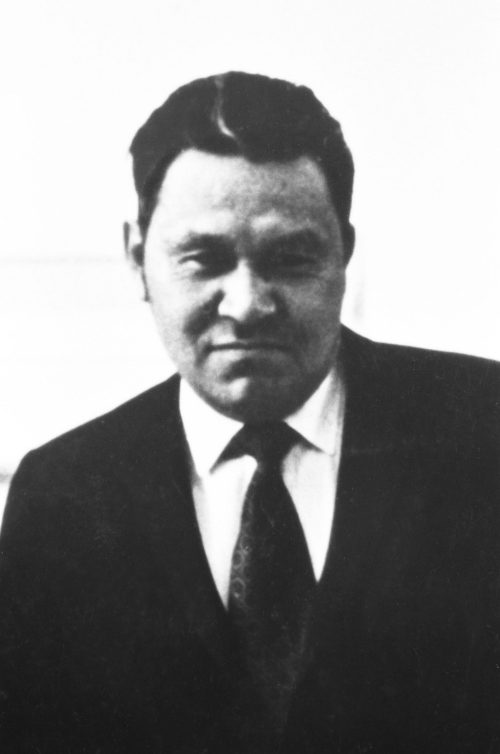
- Services
- Government
- Opportunities
- Culture
- News & Events
- Contact Us
- I want to
For Visitors
- Services
- Government
- Opportunities
- Culture
- News & Events
- Contact Us
- I want to
Home News & Events News Honouring our Past – James Samuel Gosnell

In 1927, the federal government enacted a provision in the Indian Act that made it illegal for Aboriginal Peoples to gather to discuss land question issues. The legislation was repealed in the early 1950’s and it was then that the Nisga’a Nation gathered to form a political body that would carry on the work of its predecessor, the Nisga’a Land Committee. The new organization became the Nisga’a Tribal Council formally established in 1955.
In honour and memory of the life and achievements of our former Presidents of the Nisga’a Nation – Nisga’a Lisims Government will commemorate the anniversary of their birth by highlighting their years of invaluable service and achievements on behalf of the Nisga’a Nation.
Honouring our Past
James Samuel Gosnell – President 1973 – 1988
JAMES SAMUEL GOSNELL was born March 18, 1924 to Eli and Mary Gosnell. James lived in the Nisga’a Village of GItlaxt’aamiks with his wife Christine and his many children and grandchildren up until his untimely passing on July 30, 1988.
James was a hereditary chieftain of the Laxsgiik (Eagle) tribe and held the name Sim’oogit Hleek. Mr. Gosnell was a survivor of the Indian Residential School era, was a renowned commercial fisherman and spent his adult life in politics locally in his home community of Gitlaxt’aamiks as a Councillor and Chief Councillor and for the Nisga’a Nation as its second President to advance the struggle to resolve the Nisga’a Land Question.
Following the Calder Decision of 1973, the federal government issued its Comprehensive Land Claims policy to guide the process of treaty negotiations. The Nisga’a Nation entered negotiations with the federal government in 1976 with James as the intrepid, fiery President at the helm.
The name James Gosnell became synonymous with Aboriginal Title in Aboriginal politics of the day. Among his many achievements, as Nisga’a Nation President, James was instrumental in representing the Nisga’a Nation and all British Columbia First Nations in the Constitutional Conference talks with the federal and provincial governments in the early 1980’s.
When asked by then Prime Minister Pierre Elliott Trudeau what Aboriginal Title means, James then coined the phrase “Lock, Stock and Barrel” to articulate that the Indians in British Columbia had total and complete ownership of British Columbia.
The constitutional talks came to formally recognize and affirm the Aboriginal and treaty rights for all of Canada’s Aboriginal Peoples, but as Legal Counsel to the Nisga’a Nation, Jim Aldridge would remember, “We thought that was really good. Of course James wasn’t so happy, he says ‘why does it say Aboriginal Rights and not Aboriginal Title? Comes from the ownership of our land, never forget that Jim, it comes from the ownership of our land, all our rights do.’
As President, James was also keen to enhance the quality of life through economic prosperity. At the time, there were fewer federal or provincial laws to regulate industry – a deficiency James wanted to change so that the Nisga’a Nation would have clearly defined rights to address the social, economic and environmental impacts of projects proposed in the Nass Area so that future generations, like us, would benefit and actively participate in developments in the Nass Area.
In a 1980 TV interview on the late Jack Webster’s morning program, Webster asked James, “You’re prepared to allow development but you want your share of the pie?”
James replied, “Definitely, yes. If you look at our Declaration the key word in the Declaration is sharing of the resources not only of the people of British Columbia but all of Canada as we’ve said. So we don’t think we’re unrealistic in what we are saying. We’re not kicking anybody out. We’re not against any development in any way, shape or form. But as of this moment, we have no say in the area, nothing.”
Today, through the Nisga’a Treaty, the Nisga’a Nation, in countless ways is living the vision and dreams of James and all of our former leaders for their contributions toward achieving sustainable prosperity.
So on the anniversary of his birth, we honour and pay tribute to the life and achievements of James Gosnell.